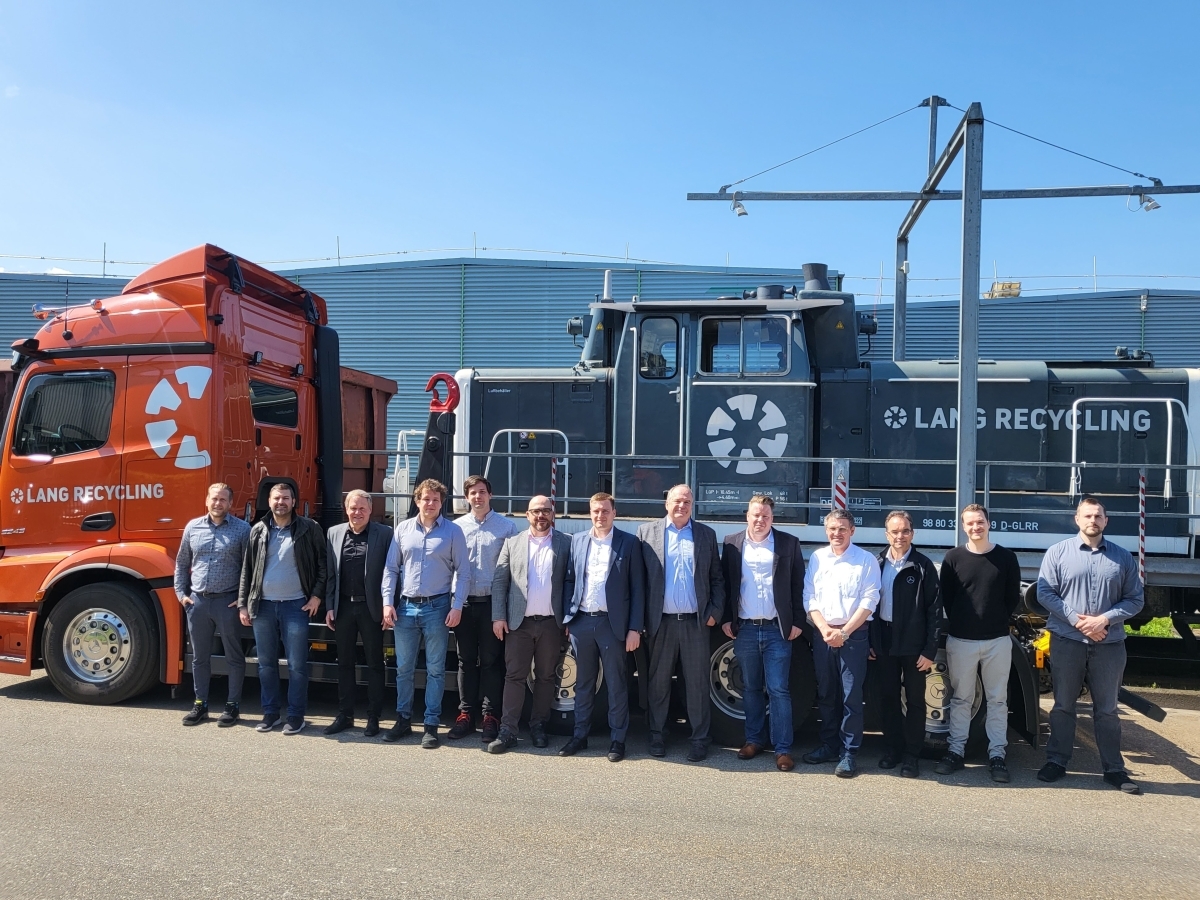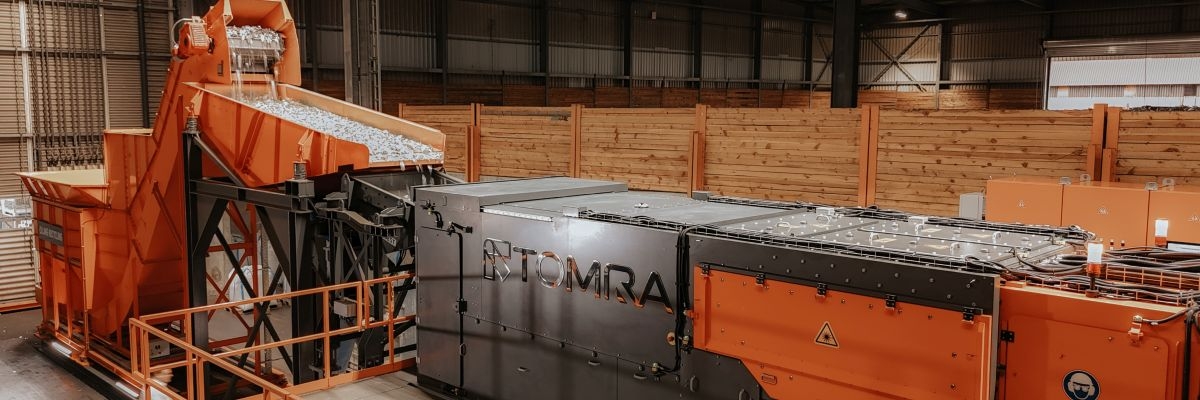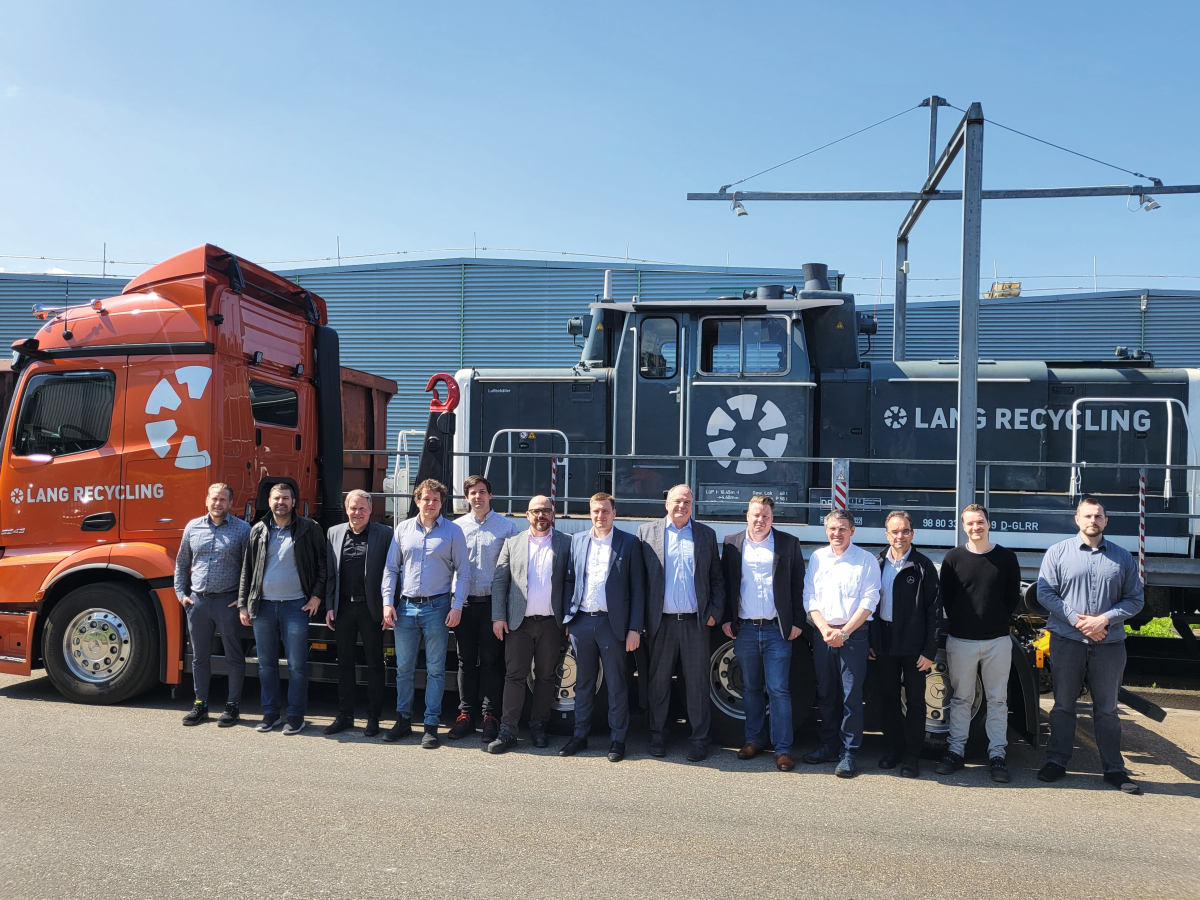TOMRA and aluminum value chain representatives test recyclability of aluminum production scrap
12.12.2023A consortium of industry representatives joined forces and established the KANAL research project. Over the next three years, they will prove that laser-induced plasma spectroscopy (LIBS) technology makes it possible to close the loop of aluminum scrap generated in automotive production.
 The consortium of industry representatives joined forces and established the KANAL research project
The consortium of industry representatives joined forces and established the KANAL research project
© Tomra
The automotive industry produces large volumes of aluminum production scrap. Although the scrap is collected, processed and reused, it is often not turned into high-quality recyclates. TOMRA, Gerhard Lang Recycling GmbH, Pforzheim University of Applied Sciences, and engineers from Jeanvré teamed up for the 3.9 million €-funded KANAL project to prove that aluminum production scrap can be effectively sorted and transformed into high-quality secondary aluminum. The consortium will use LIBS technology and target a processing capacity of up to 5 t/h. The project is supported by Novelis, the world's largest recycler of aluminum and a leading manufacturer of rolled aluminum products, and funded by the German Federal Ministry of Economics and Climate Protection as part of its lightweight construction technology transfer program.
“Aluminum is a stable, strong, albeit lightweight and durable material that is the cornerstone of many industries. So, it's not surprising that the demand for aluminum, especially in its recycled form, is steadily increasing. Leading the way is the automotive industry, which is increasingly turning to recycled materials in the production of new cars to meet regulatory requirements,” explains Frank van de Winkel, Market Strategy Manager at TOMRA Recycling Sorting.
With ever more efforts to increase the use of recycled content in automotive production and other industries, the separation of aluminum scrap according to alloy classes is taking on a decisive role. Aluminum alloys consist of different elements, such as magnesium, zinc, copper, or silicon. These additional elements define the specific properties of the aluminum alloy. Alloy classes 5000 and 6000 are particularly in demand in the automotive industry. While the production scrap is collected, it is a mixture of numerous elements which proves challenging in the recycling process. Due to the high-quality demands, the requirements to use more recycled material, and the industry’s decarbonization goals, automotive manufacturers are looking to increase the use of aluminum scrap. To recycle the scrap generated in production, it must first be sorted by alloy type. This requires innovative solutions which the consortium is testing.
“In our joint project, we focus on the detection, separation, and subsequent reuse of aluminum-magnesium alloys and aluminum-magnesium-silicon alloys, namely classes 5000 and 6000. We are delighted that we are part of the project. With TOMRA's dynamic LIBS technology, we will demonstrate together with partners from the entire value chain that we can close the loop on automotive production scrap,” adds van de Winkel.
The project is carried out in an aluminum processing plant with LIBS sorting machine at Gerhard Lang Recycling in Gaggenau in an industrial environment.



